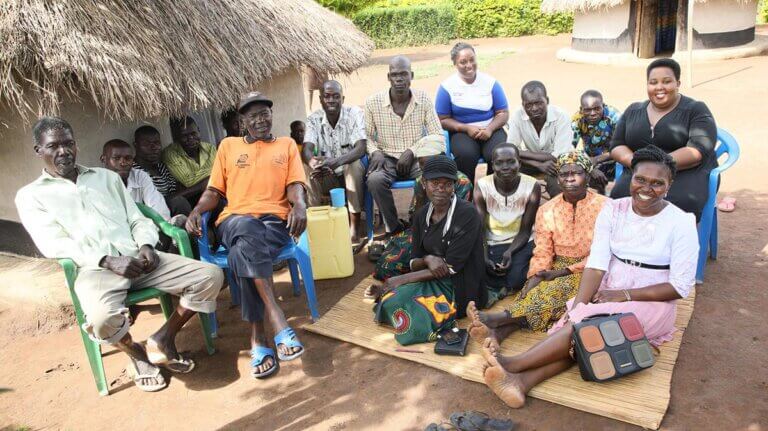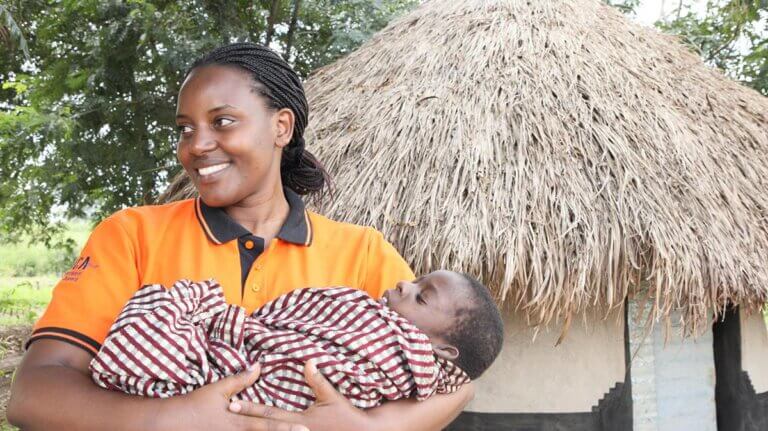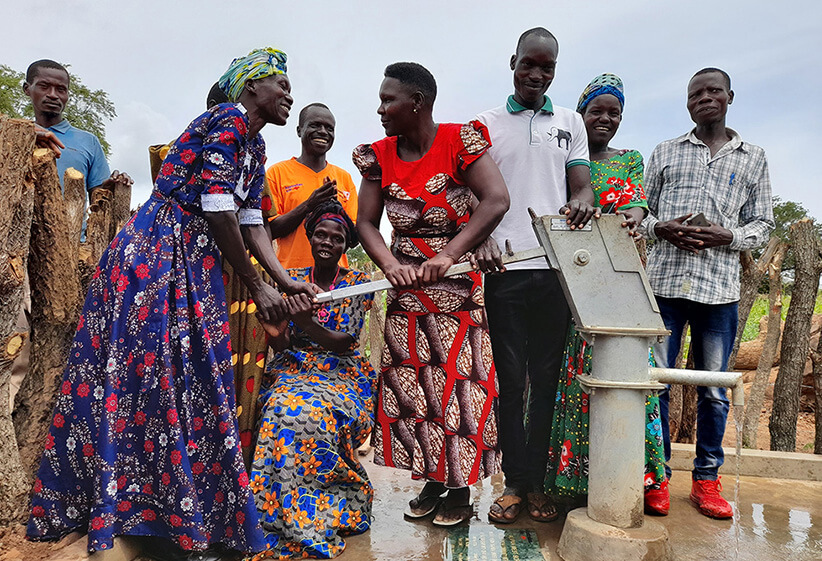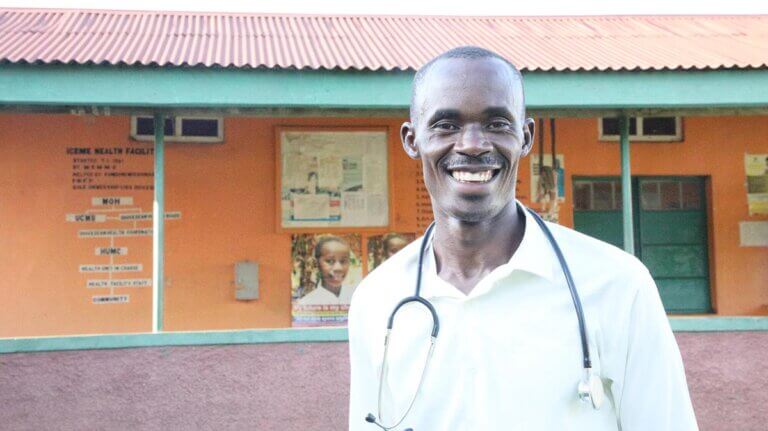Partners /
World Vision Australia
Michael Ejuku, a nutritionist at Iceme Health Centre III.
Photo credit: Damalie Mukama Natukunda, Fred Ouma.
Health and Nutrition for All in Uganda with World Vision Australia
World Vision Australia’s Health and Nutrition for All initiative, in collaboration with the Ugandan Ministry of Health, is dedicated to strengthening maternal and child health care, improving clean water and sanitation infrastructure, and fostering nutritional awareness in communities across Uganda.
Aligned with local health providers, our initiative collaborates to support the critical first 1000 days of a child’s life, with a primary goal of significantly reducing preventable diseases and malnutrition through integrated health and nutrition services.
In addition to providing support to households affected by disabilities to adopt appropriate nutrition plans, this initiative is strengthening the capacity of local health services to provide tailored support to individuals with disabilities. By focusing on local solutions with local leadership, World Vision Australia is addressing critical health needs and cultivating healthier communities for generations to come. Discover more about World Vision Australia on their website.

The Water, Sanitation and Hygiene Committee members of Te Ilwa share progress towards their community achieving open defecation-free status.
Photo credit: Damalie Mukama Natukunda, Fred Ouma.

Ingrid Natukunda, a ‘Health and Nutrition for All’ project officer carries baby Gift.
Photo credit: Damalie Mukama Natukunda, Fred Ouma.
Personal stories of success with World Vision Australia /

Women are driving community-led sanitation change in Uganda
In the rural village of Iceme in Northern Uganda, Dillis recalls a life that felt normal but was fraught with hidden dangers. “Facilities like toilets or pit latrines were things of towns for the wealthy families,” she says. For Dillis and her neighbours, drinking unboiled water was routine. “After fetching water from the borehole, we would drink or use it without boiling. We didn’t know these acts were silent disasters.”
In 2022, World Vision introduced Community-Led Total Sanitation to the area. The program challenged long-standing practices through community-driven education and practical solutions. “We discovered our habits were spreading germs and diseases,” says Dillis. Her household and many others adopted new approaches, including latrines, handwashing stations with soap, and boiling drinking water. “Today, waterborne diseases and other health conditions are no longer our stories,” she reflects.
Dillis is now a local advocate, encouraging her neighbours to adopt similar practices. The change has improved health outcomes and strengthened the community’s sense of agency. As Dillis says, the shift to better sanitation is about reclaiming control over their health and wellbeing.



